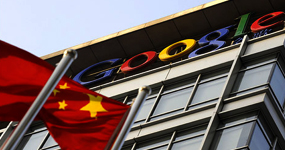
如果谷歌(Google)除了提供互联网搜索引擎,还生产铁矿石,那么它真的会陷入内心的挣扎。即使像现在这样,“退出”中国(一路退到香港)的决定也经过了精巧的权衡。谷歌得出结论认为,其品牌靠的是自己拥护自由主义的形象,而在中国仍处于襁褓中的在线广告市场的那一点份额,是不值得牺牲自己的品牌价值的。随着中国政府对互联网的管制越来越严厉,而中国黑客(不管是否得到了当局的支持)侵入谷歌的数据库越来越在行,退出的决定就更容易做出了。
但谷歌仍做了两手准备。目前,它仍将在中国内地保留研发和销售团队。谷歌希望利用“一个国家、两种服务器”制度(这是英国殖民主义的意外遗产),做到既保住自己的面子,又无需完全放弃实际利益。登陆Google.cn的中国用户,将被自动转到不受审查的香港网站。这样,谷歌履行了自己“不作恶”的誓言。如果北京方面要扮演恶人,屏蔽部分搜索结果(本周早些时候它确实在忙于这么做),那就随它去吧。
谷歌的决定让中国政府进退两难。一些官员明智地试图将退出定性为一个纯商业决定,没有多少影响大局的意义。让事件升级,可能危及中国欢迎外商投资的正式立场,并进一步毒化本已紧张的中美关系。此外,用意识形态差异来渲染谷歌的退出,会让北京方面与中国部分本土网民产生冲突:谷歌这样一家了不起的公司,居然无法在中国这样一个伟大的国家自由经营,让这些网民难堪。
但还有一些中国官员试图将谷歌描绘为敌意的美国政府的代表,指责这家硅谷公司“伤害了中国人民的感情”。这项罪名通常专门用于参拜靖国神社的日本首相,在谷歌这件事上是经不起推敲的。没有哪个国家能强迫外国公司投资。我住在伦敦西区的阿克顿。当我们这里的中餐馆关门大吉时,我从未想过要向中国大使馆抗议,指责放弃餐馆之举伤害了当地居民的脆弱心灵。
相比之下,力拓(Rio Tinto)的两难境地就不那么痛苦了。谷歌在中国的广告收入仅占其全球总收入的1.3%,而中国是力拓最大的客户。这家英澳合资矿商约三分之二的铁矿石都被中国的客户买走了。中国人用这些矿石来炼钢——钢铁是中国工业化的支柱。但力拓与谷歌一样,都与中国的法律及实践发生了冲突。本周,包括澳大利亚公民胡士泰(Stern Hu)在内的四名力拓驻华员工,因涉嫌受贿和侵犯商业秘密而受审。在许多人眼里,去年7月他们的突然被捕,像是中国政府的政治报复——此前,中方与力拓就铁矿石价格进行了激烈的谈判,力拓还拒绝了国有的中铝(Chinalco) 195亿美元现金注资。中方用来指控四人的证据笼罩在神秘中,更强化了人们的这种印象。起初,他们面对严重得多的窃取国家机密罪名,这项罪名足以被判死刑。
他们的被捕引发了有关中国与力拓甚至澳大利亚的关系破裂的悲观猜测。这种情况并未出现。中澳两国的贸易和投资往来正迅猛发展。如果说有任何变化的话,那就是力拓加快了与中国的业务往来——本月,力拓重启了一项计划,与中铝联手在几内亚开发铁矿。力拓继续照常与中国做生意的决定,可能因为本周胡士泰当庭承认受贿而变得更加容易。现在,中澳双方都可将此案定性为直截了当的个人不法行为。不过,即使胡士泰不认罪——其供述并未得到公开庭审的证实——力拓也别无选择,只能与北京方面搞好关系。就在力拓四位前高管在上海受审的当日,力拓首席执行官艾博年(Tom Albanese)正在北京人民大会堂向中国领导人表示敬意。个中象征意义清楚至极。
因此,从某种程度上讲,这就是简单的数学计算。谷歌离了中国也能生存,但力拓却不能。但这样想就太过简单了。本周英国《金融时报》援引一名专家的话称,尽管谷歌目前在华收入很少,大约在2.5亿至3亿美元之间,但不出四年就可能激增至50亿至60亿美元。这或许是谷歌的“退出”不那么坚决的原因所在。相反,尽管力拓在经济上依赖中国,但它也对中国存在矛盾心情。去年,它拒绝了中铝195亿美元的注资,部分原因是担心其最大客户(即中国政府)将本已相当大的持股比例再翻一番,会对自己不利。此后,力拓及其它一些矿商又摆脱了中国的定价要求,转而与日本钢厂合作,形成了一种新的定价机制,而中国对此几乎没有发言权。无论是对于力拓,还是对于谷歌,中国都大到不能忽视。这意味着,北京方面有时能够决定外国企业(甚至国家)与其打交道的条件。但并不总是如此。
译者/何黎
http://www.ftchinese.com/story/001031926

If Google produced iron ore as well as providing an internet search engine, it really would have been conflicted. Even as it was, the decision to “pull out” of China (all the way to Hong Kong) was finely balanced. Google decided that its brand, which depends on its image as a champion of liberalism, was worth more than a slice of China's still-nascent online advertising market. That judgment became easier as Beijing grew more heavy-handed in policing the internet and as Chinese hackers – with or without the authorities' blessing – grew more adept at tunnelling into Google's databases.
But Google has hedged its bets. For the moment, it will retain a research and development presence, as well as a sales team, in the mainland. By taking advantage of the “one-country, two-server” system – an unintended relic of British colonialism – it is hoping to have its cookie and eat it too. Chinese users who log on to Google.cn will automatically be diverted to an uncensored site in Hong Kong. Google has thus fulfilled its pledge of “doing no evil”. If Beijing wants to play the baddie by blocking some search results – and earlier this week it was doing so with heavy-booted abandon – so be it.
Google's decision has presented Chinese authorities with a quandary. Some officials have sensibly sought to characterise the pull-out as a purely commercial decision of little broader significance. To escalate the affair risks jeopardising China's official stance of being welcoming to business and further poisoning already strained relations with the US. More, to paint the withdrawal in ideological hues risks putting Beijing into conflict with a subset of its own netizens who are embarrassed that a great company such as Google cannot operate freely in a great country such as China.
But other Chinese officials have sought to portray Google as a proxy for a hostile US government and accusing the Silicon Valley company of “hurting the feelings of Chinese people”. The latter accusation – normally reserved for Japanese prime ministers visiting war shrines – does not stand up to scrutiny. No country can compel foreign enterprises to invest. When my local Chinese restaurant closed down in west London, it did not occur to me to lodge a complaint with the Chinese embassy on the grounds that abandonment had traumatised the sensitive souls of Acton.
Rio Tinto's dilemma has been somewhat less agonising. Unlike Google, whose revenues from Chinese advertising account for just 1.3 per cent of the total, China is the Anglo-Australian miner's biggest customer. Some two-thirds of Rio's iron ore is gobbled up by Chinese customers, who use it to make the steel that is the backbone of China's industrialisation. But Rio, like Google, has fallen foul of Chinese laws and practice. Four China-based employees, including Australian citizen Stern Hu, were this week on trial for taking bribes and stealing commercial secrets. Their sudden arrest last July looked to many like a political reprisal after acrimonious negotiations over the iron ore price and Rio's rejection of a $19.5bn cash injection by Chinalco, China's state aluminium group. That impression was compounded by mystery surrounding the evidence against them. They originally faced much graver charges of stealing state secrets, a crime punishable by death.
The arrests prompted dark talk of a breakdown in China's relations with Rio – and even with Australia. That has not transpired. Trade and investment between the countries is booming. If anything, Rio has stepped up business with China, this month resurrecting a plan to team up with Chinalco to exploit iron ore reserves in Guinea. Its decision to carry on with business as usual may have been helped by Mr Hu's admission in court this week that he took bribes. Both sides can now present the affair as a straightforward case of individual wrongdoing. Yet even without that confession – as yet to be properly verified in open court – the Anglo-Australian miner had little option but to cosy up to Beijing. On the very day the four Rio executives were standing trial in Shanghai, Tom Albanese, Rio's chief executive, was paying homage to China's leaders in Beijing's Great Hall of the People. The symbolism could hardly have been clearer.
By some measures, then, it is simple mathematics. Google can live without China, Rio cannot. But that oversimplifies things. Although Google's Chinese revenues are currently small, at about $250m-$300m, they could swell to $5bn-$6bn within four years, according to one expert quoted in the FT this week. That could be one reason why Google's “withdrawal” has been less than emphatic. Conversely, for all Rio's economic dependence on China, it too is ambivalent. It rejected Chinalco's $19.5bn last year partly because of concerns that it was unhealthy for its largest customer (the Chinese state) to double its already substantial shareholding. Rio and others have since extracted themselves from China's price-setting demands, working with Japanese steelmakers to develop a new pricing mechanism in which China will have little say. For both Rio and Google, China is too big to ignore. That means Beijing can sometimes dictate the terms with which businesses – and even countries – engage with it. But not always.

没有评论:
发表评论